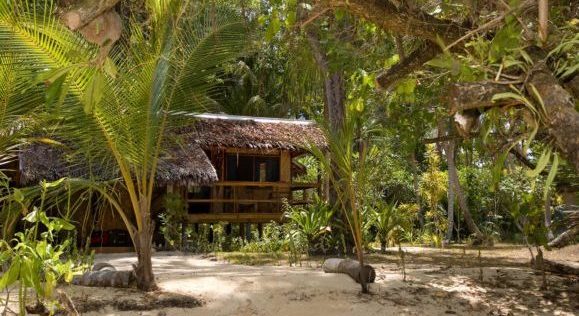While it awaits clarity from government on its future, Papua New Guinea’s troubled tourism industry has come up with some of its own ideas on how to restart international tourism to the country. Here’s what some of the key operators told Business Advantage PNG.
Has the global pandemic hurt any industry like it has tourism, a sector that is predicated on the free movement of people around the globe? Last month, the Business Council of PNG found that the tourism and hospitality sector has been the hardest hit by the COVID crisis, with a third of businesses reporting that their first half revenue for 2021 was down more than 50 per cent on projected revenue. The industry is tipped to have lost over K500 million to COVID, with an 82 per cent drop in international arrivals, according to PNG’s Tourism Promotion Authority (TPA).
While there is some domestic tourism activity, there is no information yet on when the issuing of international tourist visas can be restarted in PNG. Operators are hurting and they have recently decided to take matters into their own hands.
Vaccinating their way to open borders
‘The industry has been left to essentially fend for itself on the street like a little child,’ says Andy Abel, President and Co-founder of the Surfing Association of PNG, who also sits on the board of the PNG Tourism Industry Association. ‘I have been very critical of this but I am now rallying all the relevant stakeholders to play their part to say to government that you may have forgotten us and yet COVID has directly impacted so many, business, jobs, and foreign exchange.’
‘We cannot sit around bitching all day. What is our solution?’
Abel’s answer has been to form a working group with a range of stakeholders, from airlines and airport to resorts and hotels, to help set out a path for them to resume welcoming tourists from overseas. The starting point is to try and raise vaccination rates in PNG, one of the least-vaccinated countries in the world, at just under 2 per cent of the total population.
‘What I have suggested is an awareness campaign to say everyone has to get vaccinated, because unless we increase that 2 per cent rate up to 60, 70 or even 80 per cent like Fiji, then international borders will not open and that is the bottom line,’ Abel says. ‘We cannot sit around bitching all day. What is our solution?’
Understanding the reach of tourism
At Lissenung Island Resort in Kavieng, Angelique Amon says she is amazed by the resilience of international tourists who have had to abandon their plans to come to PNG. ‘The people want to come, we are changing bookings from month to month. That’s how keen people are,’ she tells Business Advantage PNG.
Amon would like to see a visa trial extended to international tourists that give them the same benefits that business visa holders currently enjoy. (Currently, business visa holders from ‘non-high-risk countries’ who have tested negative to COVID-19 and are fully vaccinated can enter PNG without the need to quarantine.)
‘It is of great concern to tourism operators that tourist visa holders cannot enter the country, regardless of vaccination status or a safe country origin unless they have permission from the Controller [Pandemic Controller David Manning]. The process of applying for, and being granted an exemption can be lengthy, therefore putting tourists off from visiting PNG,’ Amon adds.
‘The tourists may have stopped but the tax and paperwork for the government have not.’
‘We are not just depending on Australian tourists, but currently more on European and US tourists. Most of Europe is considered low-risk, and while Australia still has all these lockdowns, the Europeans are more than ready to travel. Before COVID, our biggest market was actually the German-speaking market at 25.1 per cent vs Australia at 21.5 per cent.’
Amon points out that the tourist dollar in PNG is spread widely, with many relying on tourism activity to put food on the table.
Isolating in paradise
Amon and her fellow resort operators are also looking at the idea of allowing exemptions for low-risk activities such as surfing or diving. They understand that, in the case of the Kokoda Trail, an infected person could possibly spreading the COVID-19 virus from one village to the next during a seven-to-nine day trek.
On the other hand, tourists who book a surfing, diving or fishing holiday will stay with the same operator for their entire trip, therefore the risk of them passing the virus on is fairly limited. If they are contained to a single island resort, the risk is even lower.
View this post on Instagram
;
‘All of the tourism businesses in PNG need to be taken care of before they go to the wall,’ says Shaun Keane, owner of Nusa Island Retreat in Kavieng.
He believes in a well-though-out reopening and says that certain offerings like boat stays or island resorts do provide options for a trial, but all come with some risk.
‘My facility is less that a kilometre from the shores of town, so I would need to look at how we do business and put a break on day guests,’ he tells Business Advantage PNG.
Above all, he supports the current raising of voices in the industry which has been so quiet for so long. Keane thinks the country should look at incentives, pilot programs and anything that gets tourist back to PNG. As he points out: ‘the tourists may have stopped but the tax and paperwork for the government have not.’









Speak Your Mind